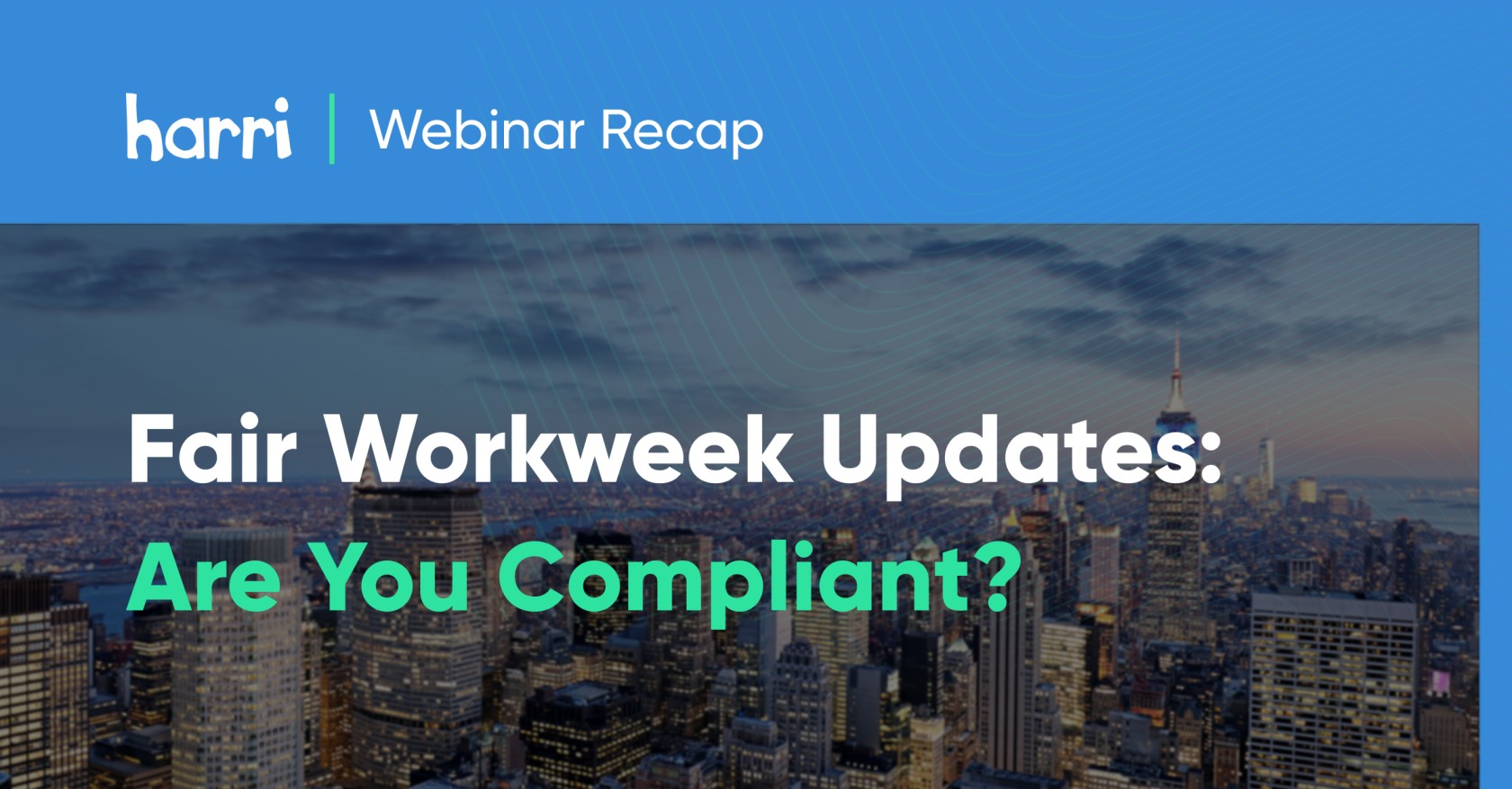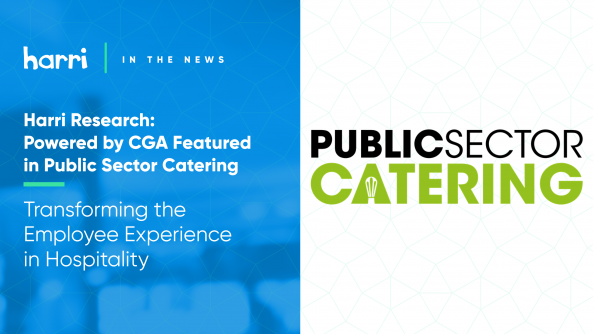NYC Fair Workweek Updates June 2022

- By Harri Insider Team | June 28, 2022
Thursday, June 23rd, marked the effective date of final adoption for New York City’s Fair Workweek legislation. First enacted in 2017 (and later revised), the Fair Workweek law enacts a set of specific protections for employees and responsibilities for employers toward ensuring more stable work environments for service-industry workers.
These new regulations apply to all fast-food restaurant workers, quick-service restaurants (QSR), and fast-casual chains with more than 30 locations (including franchises) nationwide.
Ahead of the changes, our Compliance Team at Harri hosted a webinar to introduce the implications and opportunities of the regulations. Our brief covered critical elements of the new regulations that will significantly impact managers and operators on a daily basis. These included:
- Updates to recordkeeping, including new regulations on how employers must keep records, what kinds of information they must collect, how they should make this information available, and the length of time these records must be maintained. Here is a breakdown of the new recordkeeping requirements at a glance.
- Policies and procedures pertaining to employee consent. We examined employer due diligence concerning reducing employee hours, adding shifts, scheduling clopenings (when employees close a business location and then open it the next morning), and otherwise changing an employee’s schedule. We covered how the law defines consent and the documentation needed to appropriately collect and record consent.
- Expectations governing regular scheduling (formerly known as “good faith estimates”) to ensure long-term scheduling predictability. We considered the instances in which these regulations apply, and when there are exceptions.
- Rules for creating and circulating work schedules, including the minimum amount of advance notice for employees required by law and the rules governing altering posted schedules. We also cover new language around de minimis schedule changes which expand employer flexibility to compensate for unforeseen schedule disruptions.
- Premiums and consent requirements for clopenings – situations in which employees close a business location and then open it the next morning – and why it’s likely best to avoid scheduling these whenever possible.
- Regulations around offering shifts to employees, when and how to inform employees that additional hours are available, and who is eligible for these shifts.
- Finally, we examined what constitutes a bona fide economic discharge and what obligations an employer has towards employees that are terminated in this manner (the result of the full or partial closing of business operations).
The new regulations are complex. And, as we demonstrated, noncompliance can quickly get expensive. Our webinar walks leaders through the ins-and-outs of the law, parsing its language and providing real-world examples to illustrate a Fair Workweek in motion. The full recording is available here.
Harri’s Compliance team diligently researches these and other regulatory developments, ensuring our platform’s continued compliance with the ever-evolving measures surrounding scheduling and workflow management. If this new world of work seems overwhelming, Harri can help.
You can download the entire presentation, with full details and examples here.





















